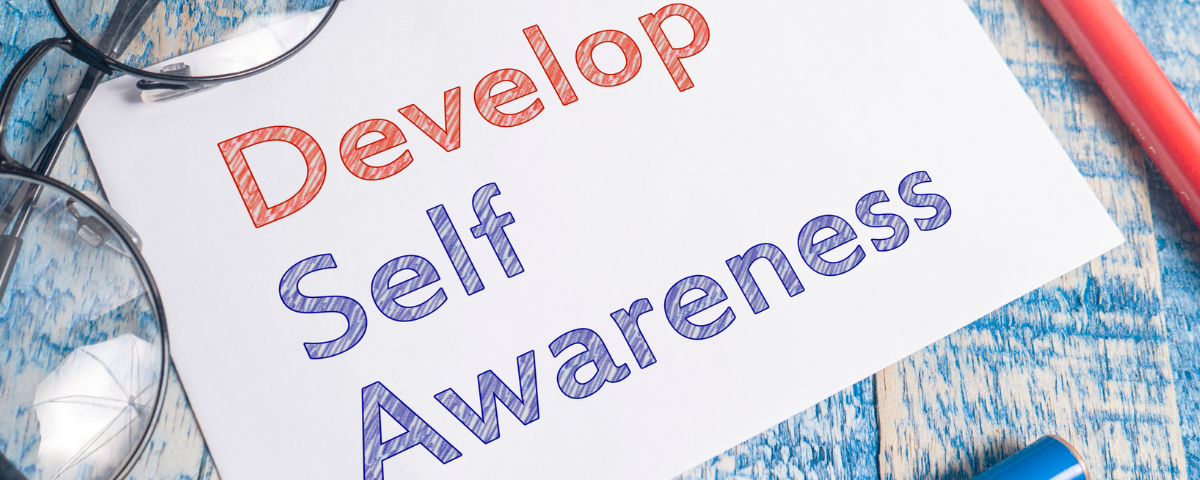Yoğun geçen günlük koşturmanın içerisinde kendine zaman ayırmak ve öz farkındalığını yükseltmek önemli bir yere sahiptir. Hem kişisel hayatında başarılı olmak hem de çalışma hayatında önemli bir konuma sahip olmak için öncelikle öz farkındalığı geliştirmek ve hayatı daha bilinçli bir şekilde yaşamak gerekir. Öz farkındalık kişinin kendini sevmesi, kabul etmesi ve kendini anlaması olarak görülür. Kendi kişisel gelişiminizi tamamladığınızda hayatı daha bilinçli ve iyi bir şekilde yaşarken, aldığınız tüm kararları da bu bilinç doğrultusunda doğru bir şekilde almanızı sağlar. Bu doğrultuda öz farkındalık, kişinin kendini tanıması ve kendisi için gerekli kararları alırken iyi ve kötüyü ayırt ederek daha doğru yaşama yönlenmesi gerekir. Kişinin kendini tanıması demek hem duygularını daha doğru yönlendirebilmesi hem de kararlarını mantıklı ve bilinçli bir şekilde vermesi anlamına gelir. Ayrıca öz farkındalığı yüksek olan bireyler daha iyi hissederek hem iş hayatındaki ilişkilerinin hem de kişisel ilişkilerinin daha sağlıklı ve uyumlu olmasını sağlar. Kişinin kendine karşı saygılı, dürüst, anlayışlı, şefkatli olması öz farkındalığı oluşturan temel unsurlar arasında yer alır.
Öz farkındalığı kalıcı hale getirmek için öncelikle kişinin kendini tanıması gerekir. İsteklerini, ihtiyaçlarını, kurallarını ya da hislerini gözlemleyerek kendi için en doğru ve en iyi olanı seçmesini sağlamaktır. Bunun için de öz farkındalığını geliştirmek ve bu gelişimi sürekli destekleyerek daha kalıcı bir hale dönüştürmek gerekir. Öz farkındalığı geliştirmek için öncelikle belirli birkaç davranış ve sağlıklı yaşam için gerekli olan adımları atmak gerekir. Meditasyon yapmak bilinci sakinleştirmeyi, zihni yatıştırarak olaylara daha sakin ve açık bir gözle bakmayı sağlarken aynı zamanda odak süresini artırarak öz farkındalığın gelişmesine de katkı gösterir.
Düzenli olarak meditasyon yapmak, duygusal farkındalığı artırarak kişinin daha pozitif ve sakin kalmasını sağlar. Öz farkındalık için önemli olan bedensel ve duygusal farkındalık da öz farkındalığın daha kalıcı bir hale gelmesi için önemli bir adımdır. İnsanlar kendilerine zaman ayırarak ya da daha iyi hissedecekleri davranış ve etkinlikleri sürekli tekrar ederek öz farkındalığın kalıcı bir hale gelmesini sağlayabilir. İçsel yolculuklarında kendilerini dinlemeyi, olaylar karşısında ne hissettiklerini daha net ve açık bir şekilde ifade edebilmeyi ve en önemlisi de gerektiği durumlarda hayır diyebilmeyi öğrenmek farkındalığın gelişmesi için önemli unsurlardır. Öz farkındalığın önemli bir unsuru da elbette kişinin kendine karşı dürüst olmasıdır. İkili ilişkilerde birbirine dürüst olmak ne kadar önemli ise kişinin kendine karşı dürüst olması da o kadar önemlidir. Kişi, iç sesini dinleyerek ve istediklerini veya istemediklerini kendine dürüst bir şekilde anlatarak kendini daha iyi ifade edebilir. Öz farkındalığın oluşmasında ve bunun devam etmesinde önemli bir yere sahip olan dürüstlük kişinin daha başarılı olması için gerekli olan ilk adımlardan biridir.

Öz farkındalık oluştuğunda ve bu sürekli olarak devam ettirildiğinde insanların hem kendi ile daha barışık ve sevecen bir yaşam sürdürmesini hem de diğer kişiler ile daha anlayışlı ve saygılı bir ilişki sürdürebilmesini ortaya çıkarır. Bu bağlamda öz farkındalığın öneminin yanı sıra bir diğer önemli unsur da elbette kurum farkındalığıdır. Kurumsal farkındalık, bir kişinin çalıştığı kurumun kültürünü, davranışını, değerlerini ve güç ilişkilerini daha iyi anlama ve kavramasına denir. Kurumsal farkındalık yönetimi, kurum içindeki çalışanların daha bilinçli bir hal alması ve öz güven, disiplin, iletişim, başarı, çözüm odaklılık, stres yönetimi ve daha birçok konuda gerekli eğitimleri alması ve uygulaması için gereklidir. Bu uygulamalar arasında en dikkat çeken meditasyon ve diğer eğitim türleri olmaktadır. Kurumun atacağı önemli bir adım olan bu eğitimler, çalışanların psikolojisinin yanı sıra ruhsal ve bedensel açıdan da rahatlamalarına yardımcı olur.
Kurum farkındalığını artırmak ve daha kalıcı bir hale getirmek için kurumun norm ve değerlerini tanımak, kültürünü anlamak ve başarı yönelimini ve hedefleri doğru şekilde anlamlandırarak kavramak gerekir. Öncelikle kurum farkındalığını oluşturan unsurlara önem vererek her çalışanda bu farkındalığın oluşmasını ve artmasını sağlamak kurum farkındalığının temelini oluşturmak için atılan en önemli temellerinden biridir. Kurum kültürünü kavramak ve sürdürmek iş hayatında daha başarılı olmanın anahtarıdır. Kurum farkındalığının doğru bir şekilde sürdürülmemesi belirli sorunların temelini de oluşturur. Bu farkındalık çözümleri ise kişi ve kurumun bir bütün halinde görülmesi ve ilişkilerini de kurumun ayrılmaz bir parçası olarak devam ettirmesinden kaynaklanır. Kurum farkındalığını artırırken ve kalıcı bir hale getirirken kurumun sahip olduğu değerler, başarılar, öncelikler gibi kavramların anlaşılması yer alır. Bunun yanı sıra kurum içinde çalışan kişilerin de öz farkındalığını oluşturması kurum farkındalığının gücünü artırırken daha kalıcı bir hale gelmesini sağlamasına yardımcı olur. Bu bağlamda kurum farkındalığı ve öz farkındalık birbiri ile ilişki içerisinde olur. Kurum farkındalığı resmin bütününü görme ve diğer kurumların işleyişi ve kurum farkındalığını oluşturan kavramların anlaşılır olması gibi temel nedenlere de dayanır.
Öz farkındalık ve kurum farkındalığı bilgi güvenliğinin de oluşmasını sağlar. Kurumlarda bilgi güvenliği, öncelikle çalışanlar olmak üzere tüm müşteriler ile yapılan alışverişlerde kullanılan bilgilerin korunması için kurumun üzerine düşen sorumlulukları korumak ve saklamaktır. Kurumun bilgi güvenliğini sadece kurum değil kurumdaki diğer çalışanlar da koruma altına almalıdır. Bilgi güvenliği öz farkındalık unsurunu da oluşturur. Çalışanların daha dürüst ve iş ilişkilerinin daha sağlıklı bir şekilde yürümesi için bilgi güvenliğini üst düzeyde tutması gerekir. Öz farkındalığı bulunan kişiler daha anlayışlı ve stres düzeyi düşük bireylerdir. Bu bağlamda bilgi güvenliği de hem öz farkındalığın gelişmesinde hem de kurum farkındalığının önemli bir yere sahip olmasında önemli bir unsurdur. Kurum farkındalığını ve öz farkındalığı kalıcı bir hale getirmek için bu iki temel kavramı geliştirmek ve gelişimleri için gerekli olan davranışları sürekli tekrar etmek gerekir.
NotiSecure veri güvenliğini sağlamak ve kurum kültürünü güçlendirmek için etkili bir çözüm sunar. İşletmenizdeki verilerin güvenliği ve iş süreçlerinin düzgün bir şekilde ilerlemesi için NotiSecure'ün anlık farkındalık sağlayan özellikleri ile tanışabilirsiniz.


Şirketinizde uyumluluğu iyileştirip farkındalığı kalıcı kılmaya hazır mısınız?
Deneyimlemek ve bilgi almak için kişiselleştirilmiş demo talep edin!